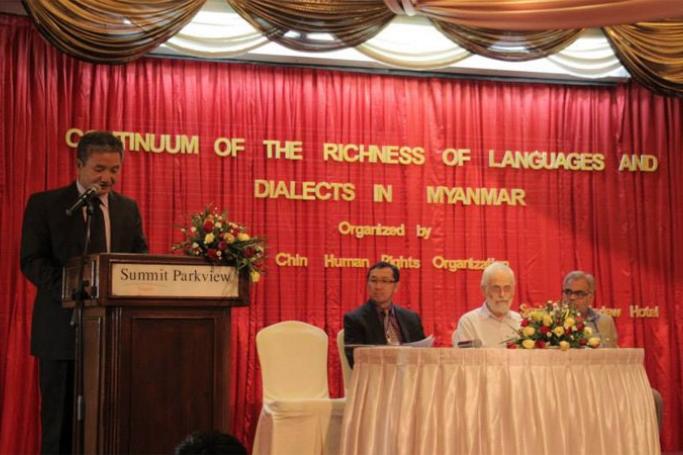The Chin Human Rights Organization has stressed that Myanmar should do all it can to retain its diversity of languages and dialects in a statement to come out of a recent meeting on multiligualism, according to a press release March 31.
The statement came as the end of a two-day national seminar in Yangon on March 25-26 focused on the rich diversity of languages in Myanmar, and the need to preserve, protect, and promote them, titled “Continuum of the Richness of Languages and Dialects in Myanmar”.
According to the NGO, Myanmar has always been a nation of rich diversity in terms of its ethnicity, languages, dialects, and cultures and multilingualism will continue to be a hallmark of the nation.
Myanmar should ensure the continuum of the richness of languages and dialects, as they represent this country's rich historicity, culture, and traditions, and the overall collective wisdom of its ancestors, the NGO said.
Multilingualism is an essential resource rather than a hindrance to any country. Numerous scientific studies have demonstrated that encouragement of it has many potential social and other benefits. Many countries with highly multilingual populations like Myanmar's have in the past lost their linguistic wealth, and many more in the present stand to lose their languages due to complex factors.
The NGO recommended that Myanmar, in its nation building process, develop a formal language policy which takes into consideration the need to: guarantee the preservation, protection, and the promotion of all of its languages and dialects (as practiced by its various ethnic groups), alongside the majority language; adopt multilingualism in primary, secondary, and tertiary education to adequately prepare and empower future generations to fully and equally participate in the development of the country; and ensure adequate institutional and financial support for the promotion of multilingualism in Myanmar.
The conference was organized by the Chin Human Rights Organization at the Summit Parkview Hotel in Yangon and brought together key stakeholders from different ethnic groups, including ethnic political parties, literature and culture committees, student and youth representatives, and ethnic armed groups, as well as renowned academics from prestigious universities around the world.
The panelists presented papers exploring the rich linguistic diversity of Tibeto-Burman languages, which include Kachinic, Kuki-Chin, Mon, and Lolo-[Burmish] languages and dialects, and discussed the risk factors for language endangerment in Myanmar. The academics also explored models and theories of second language acquisition and language shift, and examined language policies in other countries, as well as models of non-State ethnic education in Myanmar in Mon and Kayin States.
You are viewing the old site.
Please update your bookmark to https://eng.mizzima.com.
Mizzima Weekly Magazine Issue...
14 December 2023
New UK Burma sanctions welcome...
13 December 2023
Spring Revolution Daily News f...
13 December 2023
Spring Revolution Daily News f...
12 December 2023
Spring Revolution Daily News f...
11 December 2023
Spring Revolution Daily News f...
08 December 2023
Spring Revolution Daily News f...
07 December 2023
Diaspora journalists increasin...
07 December 2023












